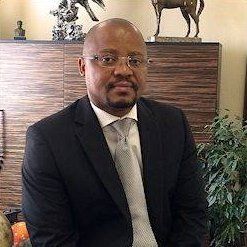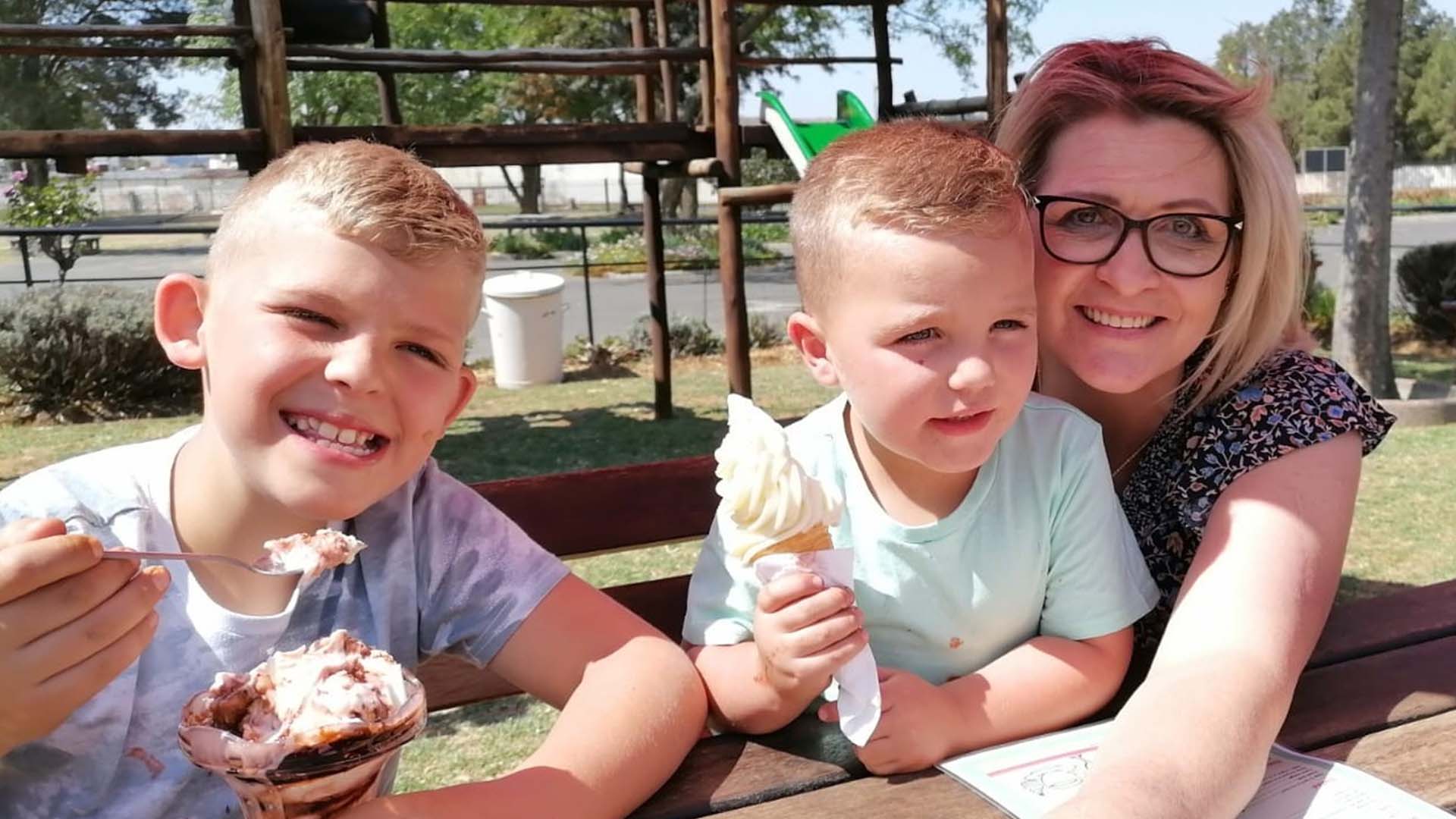Young granny raring to go after spinal surgery
Denice with her grandchildren
Specialised neuro spinal treatments restore mobility
“I wanted to run around with my grandchildren, but my back was so painful that I could only take 10 or 20 slow steps at a time, and I had to use pain control injections,” says Denice Marais, 50, who suffered a herniated or slipped disc in the lumbar spine of her lower back.
Earlier this year, Denice approached her doctor because her mobility and quality of life had deteriorated to the point where she could not stand it anymore. Denice’s doctor referred her to Dr Ratshidi Rammutla, a neurosurgeon specialising in spinal treatment at Netcare Sunward Park Hospital.
“From what he saw on my MRI scan, Dr Rammutla explained that the disc between my last two lumbar vertebrae had slipped out halfway, which was causing the pain and making every movement harder. He recommended that I have a transforaminal lumbar interbody fusion operation as soon as possible, as the problem was getting worse,” she recalls.
Spinal fusion to relieve pressure and pain
In Denice’s case, the disc of cartilage between the two lower spinal vertebrae was bulging outwards and was no longer able to keep the spinal column stable, causing pressure on the nerves to her legs and severe pain.
“I had realised before that this was serious but wasn’t keen on considering a back operation. I was petrified, I started crying but Dr Rammutla was so reassuring and he talked me through exactly what the procedure and recovery entail. He gave me the confidence to get my life back with this operation.”
“The transforaminal lumbar interbody fusion is a spinal fusion or spondylodesis procedure for the patient’s lower back. This involves spacing and then permanently securing the two vertebrae together, which relieves pressure and stabilises the affected section of the spine to protect the nerves and the spinal cord,” Dr Rammutla explains.
In a procedure lasting some three hours, an incision is made on one side of the affected section of the spine and the space between the vertebrae is decompressed with the greatest care to protect the nerves and spinal cord. A bone graft or interbody cage is positioned to fill the space left by the damaged cartilage disc and secured with special surgical screws attached to the vertebrae inside the body.
In addition to treating degenerative neurospinal conditions, Dr Rammutla’s practice assists adult and certain paediatric patients with spinal deformities, tumours and spine related trauma. At least 40% of the cases are complex, sometimes involving specialists from various disciplines working together to provide the benefit of their joint experience and shared expertise.
“Unfortunately, too often people delay seeking treatment for their back pain until their condition is quite advanced. Individuals hope their condition will improve by itself and may miss the opportunity for more conservative treatments early on if they only seek treatment when they are in a really bad way. Our multi-disciplinary team is highly skilled and experienced in treating a wide range of neurospinal conditions, including those that are very advanced and, where needed, do emergency surgeries,” Dr Rammutla says.
“When I woke up from the spinal fusion procedure, I immediately checked to see if I could feel my toes, and then I thought ‘I am going to walk again’,” Denice says.
“The day after my operation the physiotherapist got me up and the next day, I was able to walk a bit further. After that, I was ready to leave the intensive care unit and return to a normal ward – I didn’t even need help to get to the bathroom.
Raring to go
“I did my physiotherapy diligently, and as soon as I was mobile, I felt better by the day. I was in hospital for five days in total, and the nurses were wonderful. They kept asking, ‘Are you doing your exercises again?’,” Denice recalls.
“At first it was very uncomfortable, and I could only sit for five minutes, but when I was back home two or three weeks later, I could sit up and my back wasn’t sore, it just felt a bit tight. Within four weeks I was able to continue working from home part time, and two weeks later I was back to working full time again,” says Denice, who works in financial services for a motor dealership in Johannesburg.
“Within two months I was mostly recovered, and five months later I cannot believe that I can walk faster, for longer distances and can climb stairs. Back pain makes you feel old before your time, but now I am raring to go.”
Dr Rammutla points out that in-hospital care, physiotherapy, physical rehabilitation and step-down care are all crucial after spinal surgery. “These services are part of the holistic care that patients may require after neurospinal surgery, and with adequate support many patients are surprised at how quickly they regain their mobility and enhance their quality of life,” Dr Rammutla concludes.

Neurosurgeion Dr Ratshidi Rammutla specialises in spinal treatment













